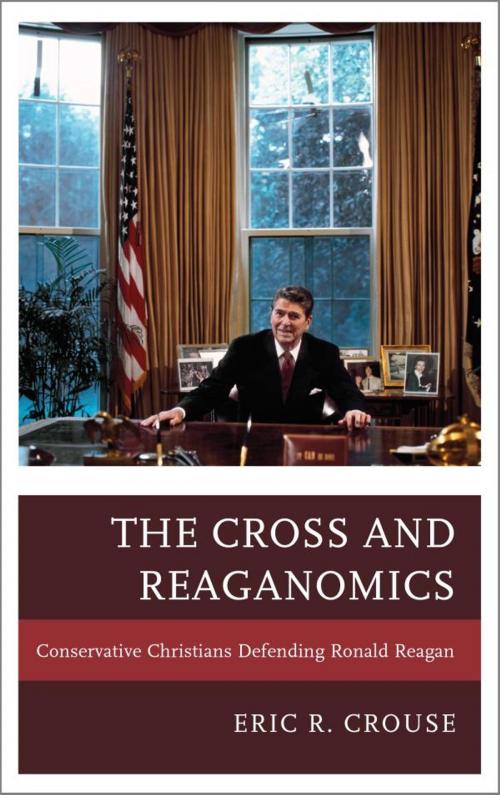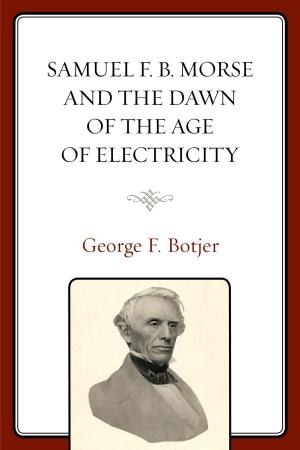The Cross and Reaganomics
Conservative Christians Defending Ronald Reagan
Business & Finance, Economics, Free Enterprise, Nonfiction, History, Americas, United States, 20th Century| Author: | Eric R. Crouse | ISBN: | 9780739182222 |
| Publisher: | Lexington Books | Publication: | May 16, 2013 |
| Imprint: | Lexington Books | Language: | English |
| Author: | Eric R. Crouse |
| ISBN: | 9780739182222 |
| Publisher: | Lexington Books |
| Publication: | May 16, 2013 |
| Imprint: | Lexington Books |
| Language: | English |
The Cross and Reaganomics: Conservative Christians Defending Ronald Reagan, by Eric R. Crouse, offers important insights on why Reaganomics was a major reason conservative Christians supported Reagan at the polls. On election night in November 1980, Americans witnessed the victory of a conservative to the presidency. With the United States experiencing economic stagnation and high inflation, many were hopeful of Ronald Reagan’s deeds matching his optimistic rhetoric of America’s potential. What followed was a decade of economic transformation, military buildup, and a political awakening of conservatism. One story that has not received much attention is the relationship between conservative Christians and Ronald Reagan’s economic policies. Crouse argues that conservative Christians were among the strongest champions of limited government, free enterprise (particularly small business), and anticommunism. A surprising number of conservative Christian leaders discussed the works of major free market economists. Conservative Christians embraced and tapped into the traditional American values of individual opportunity, personal responsibility, and human freedom—all themes they believed were front and center in Reaganomics. Although American pluralism prevented any plan to Christianize the nation by politics, in the sphere of economics conservative Christians did witness political and cultural gains.
The Cross and Reaganomics: Conservative Christians Defending Ronald Reagan, by Eric R. Crouse, offers important insights on why Reaganomics was a major reason conservative Christians supported Reagan at the polls. On election night in November 1980, Americans witnessed the victory of a conservative to the presidency. With the United States experiencing economic stagnation and high inflation, many were hopeful of Ronald Reagan’s deeds matching his optimistic rhetoric of America’s potential. What followed was a decade of economic transformation, military buildup, and a political awakening of conservatism. One story that has not received much attention is the relationship between conservative Christians and Ronald Reagan’s economic policies. Crouse argues that conservative Christians were among the strongest champions of limited government, free enterprise (particularly small business), and anticommunism. A surprising number of conservative Christian leaders discussed the works of major free market economists. Conservative Christians embraced and tapped into the traditional American values of individual opportunity, personal responsibility, and human freedom—all themes they believed were front and center in Reaganomics. Although American pluralism prevented any plan to Christianize the nation by politics, in the sphere of economics conservative Christians did witness political and cultural gains.















